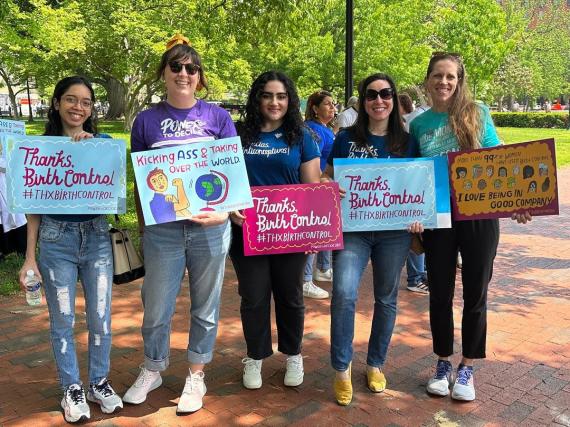Speaking the Same Language: Learning the Vocabulary of Inclusivity
The words we use can convey respect or disrespect. Language isn’t set in stone however, and the vocabulary used and meaning behind certain terms or phrases can change over time. In some cases, language is evolving right now and there is no consensus about what a particular word means to all the people it may apply to. Especially when talking about sexual orientation and gender identity, where the words we use can have a very personal association, learning the right words is an obvious sign that you want to treat people with respect.
Plus, conversations about sex, love, and relationships, which can feel tricky at the best of times, are easier when everyone is using the same language.
What should you do if you don’t know what words to use? What if you’re worried that what was respectful language when you were young is outdated or offensive now? How about if you hear your teen using totally new and unfamiliar terms?
One best practice is to ask people what words they use to describe their sexuality or gender. Another is to do research on your own—there are loads of helpful and available resources. If your young person is old enough to help, you might ask them for where they go to learn about new words or concepts. Or you could check out organizations like PFLAG to learn from their glossary.
But your new best friend may be the local library, an independent bookstore, or the Amazon delivery person as plenty of books cover gender, sexuality, and sex ed. Here are five to check out to start:
- A Guide to Gender (2nd Edition): The Social Justice Advocate’s Handbook, Sam Killermann
- Breaking the Hush Factor: Ten Rules for Talking with Teenagers about Sex, Karen Rayne
- For Goodness Sex: Changing the Way We Talk to Teens about Sexuality, Values, and Health, Al Vernacchio
- Loving Someone Gay (5th Edition), Donald H. Clark
- Sex, Teens, and Everything in Between: The New and Necessary Conversations Today’s Teenagers Need to Have about Consent, Sexual Harassment, Healthy Relationships, Love, and More, Shafia Zaloom
As you read, keep in mind that there are others in your family who want to learn more. There are age-appropriate resources for all kids, tweens, and teens about sexuality, love, relationships, and more. Here are 10 books suitable for a variety of ages:
- A Day of Pride, Roy Youldous-Raiss, Yossi Madar, and Alex Maghen
- A Tale of Two Mommies, Vanita Oelschlager and Mike Blanc
- Be Who You Are, Jennifer Carr and Ben Rumback
- Rainbow Revolutionaries: Fifty LGBTQ+ People Who Made History, Sarah Prager and Sarah Papworth
- Nonnie Talks About Gender, Mary Jo Podgurski
- Love Is Love: An Important LGBTQ Pride Book for Kids About Gay Parents and Diverse Families, Michael Genhart and Ken Min
- Proud: emPOWERment for LGBTQ youth, Mandi Hawke
- Sylvia and Marsha Start a Revolution!: The Story of the Trans Women of Color Who Made LGBTQ+ History, Joy Michael Ellison and Teshika Silver
- The Hips on the Drag Queen Go Swish, Swish, Swish, Lil Miss Hot Mess and Olga de Dios Ruiz
- Who Are You? The Kid’s Guide to Gender Identity, Brook Pessin-Whedbee
As language and ideas about sexuality and gender continue to change and evolve, there will likely always be learning that we all need to do. But if you do your best, stay respectful, and keep asking questions you’ll be the best champion you can be for all of the young people in your life.



